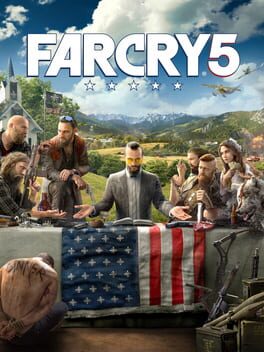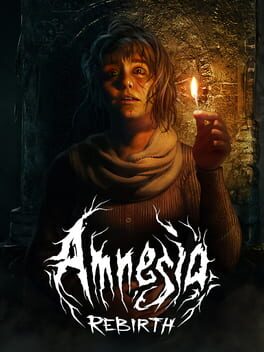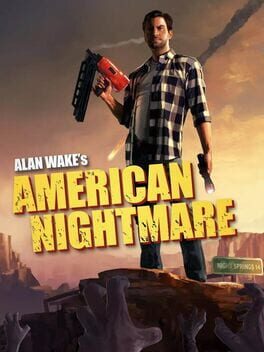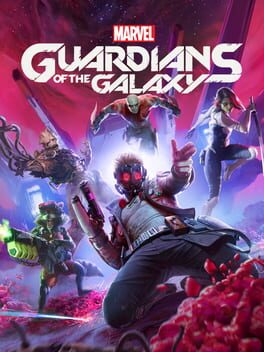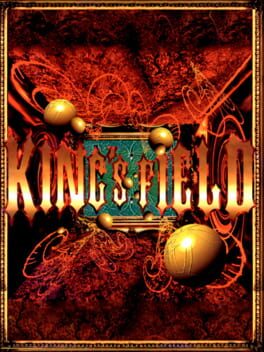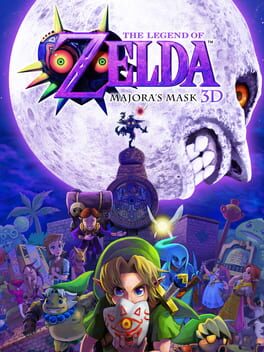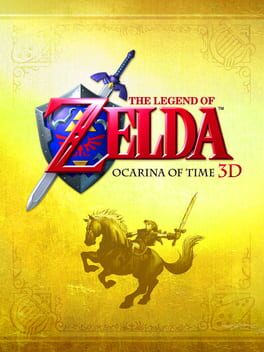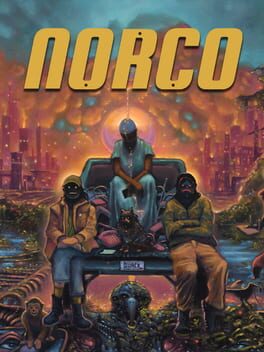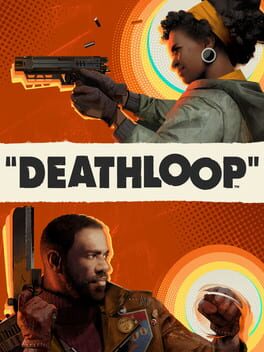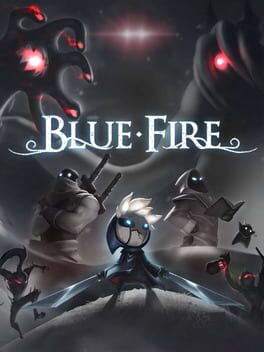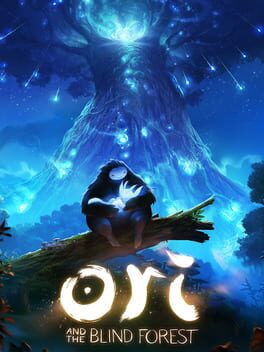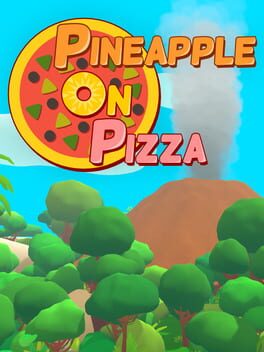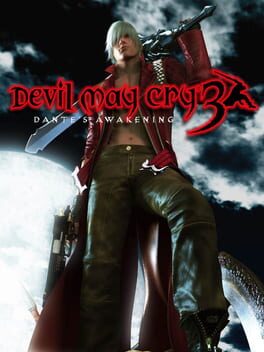DentalDynamite
2018
It's fine, it does nothing to revolutionize the series, but improves and adds a couple of things, which I appreciate. My favourite change being the sped up gameplay in general. Movement is more fluid, they ditched the looting animations, and takedowns are a lot faster to execute. I also liked the addition of guns and fangs for hire, bringing a new dynamic into the known gameplay loop (It's not completely new to the series, but drastically expanded upon). The core gameplay is solid, with the focus on liberating outposts. The only criticism I have is the subpar hit feedback. It's alright during stealth, when using silenced weapons and a bow, but during firefights, the feedback of bullet impact kinda gets lost, and it feels like I'm shooting sacks of flour, which is admittedly a criticism I have since Far Cry 3. Fortunately, there is almost always the option to play stealthily, so it didn't bother me too much. What did bother me, though, was the sometimes terrible mission design during the story sequences, the peak of which being the last boss fight of the game.
Speaking of which, what a terrible ending. I don't dislike what they did, but how they did it. This needed more build up, it came way too sudden, and that whole ending sequence lasted maybe 3 minutes. The general premise, though, I liked. I have nothing against Montana and although It's not as exotic as Far Cry 3 and 4 it has its own distinct vibe, with the cult roaming the land. I just wished they would have leaned more into the disturbing part of it. I'm still remembering those eerie teaser trailers they put out before release. I don't think they quite nailed that atmosphere in the final game. What I did not expect is the amount of work they would put into the music side of things. Every region having their own interpretation of songs written for the cult, from way to catchy country songs to ambient dreamy tracks, that make one of the areas in the game almost a feverish dream at times. The music is probably the highlight of the game for me. The rest is an okay game, which could get stale, but is thankfully one of Ubisoft's series with comparatively short playtimes.
Speaking of which, what a terrible ending. I don't dislike what they did, but how they did it. This needed more build up, it came way too sudden, and that whole ending sequence lasted maybe 3 minutes. The general premise, though, I liked. I have nothing against Montana and although It's not as exotic as Far Cry 3 and 4 it has its own distinct vibe, with the cult roaming the land. I just wished they would have leaned more into the disturbing part of it. I'm still remembering those eerie teaser trailers they put out before release. I don't think they quite nailed that atmosphere in the final game. What I did not expect is the amount of work they would put into the music side of things. Every region having their own interpretation of songs written for the cult, from way to catchy country songs to ambient dreamy tracks, that make one of the areas in the game almost a feverish dream at times. The music is probably the highlight of the game for me. The rest is an okay game, which could get stale, but is thankfully one of Ubisoft's series with comparatively short playtimes.
2020
Left me pretty underwhelmed. After the first hours I was quite positive, I liked the desert setting, how the mystery gets established, and the exploration up until that point, the highlight being the fortress, in which the player is stuck in for a while. That place captured what made the first Amnesia great I think, a single vast location you have to make sense of, with a hostile presence lurking in the dark, keeping you on edge and a great sense of progression in exploring every nook and cranny. It also incorporates the strengths of past Frictional games, most important their unique physics based interaction with the environment and puzzles that make use of that.
After the fortress, though, the game kinda starts to stumble for me. The story gets convoluted and unfocused, which is not helped by the more and more disjointed levels/locations the player traverses through. The sense of exploration I got in the fortress section got lost on me, as well as the story, so the latter half felt more and more like a slog to play through. It also didn't help that the presence of monsters became too dominant, so they became less and less frightening and more of an annoyance.
The unique death mechanic, the game has, also allowed me to skip multiple sections of the game, which made a few challenging situations pointless and rather random. The goal of that and the more disjointed locations were probably to make the player feel lost and losing control, but that didn't really work for me, unfortunately, I just wasn't as immersed as I was in past Frictional titles.
After the fortress, though, the game kinda starts to stumble for me. The story gets convoluted and unfocused, which is not helped by the more and more disjointed levels/locations the player traverses through. The sense of exploration I got in the fortress section got lost on me, as well as the story, so the latter half felt more and more like a slog to play through. It also didn't help that the presence of monsters became too dominant, so they became less and less frightening and more of an annoyance.
The unique death mechanic, the game has, also allowed me to skip multiple sections of the game, which made a few challenging situations pointless and rather random. The goal of that and the more disjointed locations were probably to make the player feel lost and losing control, but that didn't really work for me, unfortunately, I just wasn't as immersed as I was in past Frictional titles.
This small budgeted little standalone addition to the original Alan Wake fixes the predecessor's biggest problem, actually being fun to play. With the addition of new enemy types, a lot more weapons and improvements in the responsiveness to Alan's movement, I actually thought the combat system was quite enjoyable. In addition to that, this game with its own little self-contained story being set inside the fictional show Night Springs isn't nearly as long as the original Alan Wake game, which means the gameplay doesn't overstay it's welcome this time. The story told was alright elevated by the antagonist Mr. Scratch, which results in a more cheesy tone compared to Alan Wake, but this fitted the narrative context well. The most interesting part for me were the manuscript pages giving us more details about characters from Alan Wake and what happened to them after the events in the previous game.
Worth a look for everyone that enjoyed the original game.
Worth a look for everyone that enjoyed the original game.
2010
A game heavily inspired by Twin Peaks, of which there aren't many of. It's dripping in atmosphere, especially in those beautiful rendered dense forests. Has a great narrative with a good cast of characters. One of the narrative devices used is a rather unique way of conveying parts of the story, this being manuscript pages scattered around the world, which foreshadow a lot of events. All of this makes sense in the narrative context and creates its own sort of twisted, gripping suspension. I would not classify Alan Wake as a horror game, but I love its unique thriller atmosphere. Another thing I love about it and remedy games in general is their incorporation of other media forms, the highlight being the TV show Night Springs, of which the player can watch multiple episodes of. This TV show of course being a homage to Twilight Zone is often really odd and adds a lot to the unique ambiance I like about Alan Wake.
What kind of brings the game down unfortunately, is the gameplay side of things. The combat system in theory has interesting ideas, with a heavy focus on light as an offensive and defensive mechanism. But the combat really falters under the game's 10-15h runtime, with too few enemy types to fight and not nearly enough variety for the player to approach fights differently.
I also thought, that the last Episode felt rushed, which got remedied through the DLC Episodes though.
But even with the at best serviceable gameplay, I still think this is a unique experience, which earned its cult status and should be experienced.
What kind of brings the game down unfortunately, is the gameplay side of things. The combat system in theory has interesting ideas, with a heavy focus on light as an offensive and defensive mechanism. But the combat really falters under the game's 10-15h runtime, with too few enemy types to fight and not nearly enough variety for the player to approach fights differently.
I also thought, that the last Episode felt rushed, which got remedied through the DLC Episodes though.
But even with the at best serviceable gameplay, I still think this is a unique experience, which earned its cult status and should be experienced.
While I enjoyed the excellent written and voiced characters, they just could not carry the whole 20h or so journey the game takes to complete. The shallow gameplay loop became stale rather quick, and the game just dragged on for the next dozens of hours. The only thing that kept me going was the banter between the cast and the resulting humorous and sometimes emotional moments. This whole dynamic between all the characters is a real accomplishment, but I would have rather watched a show with them, than playing this game, which I kinda forced myself to finish.
1994
Coming off of Ocarina of Time, this is a bold and unique sequel. It would have been easy to just do OoT again but bigger. Instead, we got a more intimate game with a way more foreboding and oppressive atmosphere. With that tone alone, this is probably the most unique zelda game to date. Unfortunately I played the 3DS Version, which has a more vibrant look to it, watering down the dark and grim mood, which the N64 Original probably portraits a lot better. As a whole, I would describe this game as a rough gem. The 3 day time loop is an ambitious concept with every NPC having a complete schedule, which makes the world feel more alive and adds to the existential dread seeing all of them living out their last days before the catastrophe. With the NPC system this expanded, the game has a big focus on side quests, an aspect I kinda ignored this first time around, which is probably the reason I'm a bit lukewarm on this game right now. I was coming from OoT, where for me the main attraction were the dungeons. Majora only has 4 big ones. Those dungeons are a lot more open than in Ocarina, and want to make you think about those places as a whole structure. To finish them, you really have to understand the layout of each place, a continuation of the water temple in Ocarina, which I liked. But because they are as non-linear, the chance to get lost was higher. Especially the Stone Tower, where the way to the final boss was a bit obscure. In comparison, I thought the dungeons in Ocarina were more tightly designed and visually more varied. Additionally, the time loop got in the way occasionally. Not being able to finish a dungeon because you ran out of time means repeating parts of it, which I found to be a bit tedious. The time loop in general creates a bit of repetition. I played Majora the same way as OoT, just completing the Dungeons along the main path and finishing the game. The finale I thought was great. The final boss and everything surrounding it captured the surrealism of the game well. But the game probably would have benefitted, if I had interacted more with the inhabitants of Clock Town, soaking in more of the actual world. I'm interested in revisiting this game in it's original N64 form someday, taking in the unaltered mood and taking more time to appreciate the sidecontent, which likely makes it a more cohesive and involved experience.
After I played both Ocarina and Majora's Mask, with Majora being a more unique take on Zelda, I think Ocarina just comes together as a more cohesive whole unlike its successor. I didn't know about the time twist occurring midway through the game, which was a great surprise and good motivator to discover the world and its inhabitants again. The real highlight for me though were the dungeons, I really enjoyed solving all those elaborate puzzle boxes, especially the water temple making great use of 3D space. As a whole a remarkable game, if you keep in mind, that this was the first 3D Zelda.
2022
A game I just loved the whole vibe of, from the melancholic moments to the more humorous situations. I was immediately enamored by the sci-fi dystopian swampy Louisiana, a setting I did not see before. All presented with gorgeous pixel art and equally good sounding music. Unfortunately with continuing playtime the game started to fall a bit flat for me. I liked the intimate first part more than the second, where spiritual elements begin to dominate the story. And albeit ending in a picturesque feverish dream, which I won't forget, the game kinda lost me. Still highly recommended.
2021
The first time I left an Arkane game just feeling empty. Coming from Prey, which was one of my favorite games in the PS4/Xbox One generation and the Dishonored games, which are equally great, this game now is honestly a disjointed mess. It has a novel idea, with the whole time loop thing going on, but doesn't really do anything with it, contrary even it ends up being the most constricted game from Arkane.
The game starts with a ridiculously long tutorial phase, lasting 4 hours, showing way too many text popups everywhere trying to explain all its systems, through which the game appears overly complicated. It suggests to the player, that there is maybe a complex experience coming up, with lots of player driven choices and urgency, because of the whole loop thing and the finite amount of time the player has to achieve the end goal... yeah no, that's not happening, instead, after that painfully long tutorial, the game funnels the player through a strictly linear wild goose chase, running to one location, being told to find a code of some sort in another location, and then coming back to further progress. Through this approach you end up going through the 4 distinct maps the game has a bunch of times, which ends up getting old fast. They try to diversify the locations through the different times of day, but that always just felt like a color swap applied to the locations, nothing more. This whole process is made worse, because to switch locations, you always have to go back to your home base, which is just a glorified menu, where the player picks their load-out, and which progresses the time of day on the current loop. This static way of handling the central time mechanic seems kinda awkward and always going back to that menu feels like I am preparing for a Call of Duty match, which is really unimmersive and makes that whole experience really disjointed. The game has its reasons though, doing things this way, and the answer to that is the PVP invasion system. Although a nice idea, I think this rather small part of the game just compromises too much of the single player side of things. The game has a lot of the same abilities found in the Dishonored games, but instead of getting progressively more options, the player here is limited to what they have at hand in their current load-out. Another part that was sacrificed are interesting enemy types. There are none, there is only one, I say it again ONE enemy type and their AI is rather limited. Not even the 7 Visionaries you have to kill to break the time loop and finish the game are anything special, they just have a bigger health pool.
And that pretty much is the bulk of the game, running to different parts of the 4 locations, fighting the same enemy over and over again, doing random things to place the 7 Visionaries in such a way, so you can kill all of them in a single day. There is no creative problem-solving to this the game has a specific way laid out for you, you just have to blindly follow it to the end, while playing a game reminiscent of Dishonored, but severely limited in the player freedom found there.
To say something positive, the banter between Colt and Julianna was great, because of excellent voice acting and I liked the soundtrack. The Visionaries were unfortunately really one-note and the story was just a nice backdrop with an unsatisfying ending. And because of the locations being artificially separated by that hub menu, I never developed any sense for the world.
So in conclusion, I wouldn't really recommend this game. If you like the roster of abilities the game has, play the Dishonored series, where you have the same and more. And if you want to creatively kill people, go play the Hitman World of Assassination trilogy, which excels in that regard.
The game starts with a ridiculously long tutorial phase, lasting 4 hours, showing way too many text popups everywhere trying to explain all its systems, through which the game appears overly complicated. It suggests to the player, that there is maybe a complex experience coming up, with lots of player driven choices and urgency, because of the whole loop thing and the finite amount of time the player has to achieve the end goal... yeah no, that's not happening, instead, after that painfully long tutorial, the game funnels the player through a strictly linear wild goose chase, running to one location, being told to find a code of some sort in another location, and then coming back to further progress. Through this approach you end up going through the 4 distinct maps the game has a bunch of times, which ends up getting old fast. They try to diversify the locations through the different times of day, but that always just felt like a color swap applied to the locations, nothing more. This whole process is made worse, because to switch locations, you always have to go back to your home base, which is just a glorified menu, where the player picks their load-out, and which progresses the time of day on the current loop. This static way of handling the central time mechanic seems kinda awkward and always going back to that menu feels like I am preparing for a Call of Duty match, which is really unimmersive and makes that whole experience really disjointed. The game has its reasons though, doing things this way, and the answer to that is the PVP invasion system. Although a nice idea, I think this rather small part of the game just compromises too much of the single player side of things. The game has a lot of the same abilities found in the Dishonored games, but instead of getting progressively more options, the player here is limited to what they have at hand in their current load-out. Another part that was sacrificed are interesting enemy types. There are none, there is only one, I say it again ONE enemy type and their AI is rather limited. Not even the 7 Visionaries you have to kill to break the time loop and finish the game are anything special, they just have a bigger health pool.
And that pretty much is the bulk of the game, running to different parts of the 4 locations, fighting the same enemy over and over again, doing random things to place the 7 Visionaries in such a way, so you can kill all of them in a single day. There is no creative problem-solving to this the game has a specific way laid out for you, you just have to blindly follow it to the end, while playing a game reminiscent of Dishonored, but severely limited in the player freedom found there.
To say something positive, the banter between Colt and Julianna was great, because of excellent voice acting and I liked the soundtrack. The Visionaries were unfortunately really one-note and the story was just a nice backdrop with an unsatisfying ending. And because of the locations being artificially separated by that hub menu, I never developed any sense for the world.
So in conclusion, I wouldn't really recommend this game. If you like the roster of abilities the game has, play the Dishonored series, where you have the same and more. And if you want to creatively kill people, go play the Hitman World of Assassination trilogy, which excels in that regard.
Brilliant mystery game, where you actually feel like a detective, with an amazing visual style, great accompanying music and really well done voice work and sound design. The idea of the pocket watch showing the single moment of one's death is ingenious, unfortunately with a great number of people on board the ship, I thought, that style of presentation got a bit old by the end, it doesn't change much, and the music gets a tad monotone. Another minor criticism I have is the way the game tells you you are correct, which resulted more often than not in random guesses or just placeholder stuff I inserted hours ago being right, which didn't felt particularly rewarding. Other than that, I really enjoyed this boat trip though.
2021
Not a perfect game, but shines in the right parts, which made it a great experience for me. The biggest of which is the really satisfying movement system, it just feels great to move around the world, which gets even better, when the game progresses, unlocking new movement abilities and modifiers. The amount of fun i had just dashing and flying around the world in the last hours can't be underestimated. Paired with that is a well designed world resembling a mix of Zelda and Dark Souls that supports that movement and enables really satisfying exploration with enough things to discover. One thing of which are the numerous voids scattered around the world, smaller separate levels, which challenge the players movement abilities. Those levels can get dicey, but were never too frustrating (mind you i did not play the DLC yet).
Getting around being as fun as it is, i didn't mind it too much that the combat system kind of falls flat, it is fine with normal enemies and the boss encounters are servicable, but unlike the movement system, that aspect of the game unfortunately doesn't evolve much, but it's also not the thing the game focuses much on.
The story is fine, a nice backdrop for the world, but nothing more, i enjoyed stumbling across all the quirky npc's allong the way though.
One last thing to point out is the surprisingly well made sound design, that really adds to the souls-esque atmosphere the game is going for.
Getting around being as fun as it is, i didn't mind it too much that the combat system kind of falls flat, it is fine with normal enemies and the boss encounters are servicable, but unlike the movement system, that aspect of the game unfortunately doesn't evolve much, but it's also not the thing the game focuses much on.
The story is fine, a nice backdrop for the world, but nothing more, i enjoyed stumbling across all the quirky npc's allong the way though.
One last thing to point out is the surprisingly well made sound design, that really adds to the souls-esque atmosphere the game is going for.
Wish i could rate it higher, because it does a lot of things right. Visually its stunning and the soundtrack is great. I liked the overall progression, finding new abilities until the last third, where the game challenges the player to use everything they learned up to this point. All of the caves are really well designed with lots of different puzzle ideas, great variety, that i didn't expect. General gamefeel is good.
The escape sequences are great setpiece moments and i wanted to like them, but them having no checkpoints at all resulted in lengthy trial and error segments and made especially the last ones a bit frustrating, which kinda ruined the suspension, while the background track, that tries to enforce the suspension, begins looping.
But the biggest issue for me by far is the weak combat system, that only gets worse the longer the game goes on. The default method of attack with the floating orb autotargeting enemies and dashing out attacks feels really awkward to use. Enemy healthpools are getting way too large, so it just gets tedious to fight them. So more often than not i was left feeling annoyed. Hopefully the sequel improves on that aspect.
The escape sequences are great setpiece moments and i wanted to like them, but them having no checkpoints at all resulted in lengthy trial and error segments and made especially the last ones a bit frustrating, which kinda ruined the suspension, while the background track, that tries to enforce the suspension, begins looping.
But the biggest issue for me by far is the weak combat system, that only gets worse the longer the game goes on. The default method of attack with the floating orb autotargeting enemies and dashing out attacks feels really awkward to use. Enemy healthpools are getting way too large, so it just gets tedious to fight them. So more often than not i was left feeling annoyed. Hopefully the sequel improves on that aspect.
2023
Played through the HD Collection on Steam.
After the mindbogglingly bad second entry in this series they just knocked it out of the park with this one. Dantes goofy nature, this time being younger and more immature than in the previous games, is just dialed up to 11. This results in quirky dialogue with various bosses and other characters and amazing action sequences, where he just has way too much fun being an overpowered demigod doing ridiculous stuff.
The direction in those cutscenes is really good, just watch that first scene in his shop right at the start of the game.
The gameplay builds upon DMC1, which already felt good, refines it and just adds tons of stuff. I was surprised how many new weapons the game gives the player in a short amount time, and like in the first DMC, every weapon has a really unique feel to it, each with its own usecases. Accompanying the great combat system are, for the first time, great boss encounters, something DMC1 and 2 kind of struggled with. There wasn't one boss, which, i felt, was annoying to fight, just be prepared that this game isn't easy, which the game clearly communicates with its first boss. Another difficulty spike for me was the last battle with Vergil, where i gave in and used items for the first time, but i didn't think the boss was unfair, just me being too impatient.
The only negative i have is probably the visual variety in environments, which i found a bit lackluster, but this didn't bother me too much.
And the last thing worth mentioning is the great soundtrack, which is no surprise, i already liked those in the first two games, so nice to see that this remains a constant.
Thats enough gushing about this game. I only played it once, so i didnt see everything, just my impressions right now.
I'm probably gonna revisit it again, play on other difficulties and as Vergil, but right now want to move on to DMC4
After the mindbogglingly bad second entry in this series they just knocked it out of the park with this one. Dantes goofy nature, this time being younger and more immature than in the previous games, is just dialed up to 11. This results in quirky dialogue with various bosses and other characters and amazing action sequences, where he just has way too much fun being an overpowered demigod doing ridiculous stuff.
The direction in those cutscenes is really good, just watch that first scene in his shop right at the start of the game.
The gameplay builds upon DMC1, which already felt good, refines it and just adds tons of stuff. I was surprised how many new weapons the game gives the player in a short amount time, and like in the first DMC, every weapon has a really unique feel to it, each with its own usecases. Accompanying the great combat system are, for the first time, great boss encounters, something DMC1 and 2 kind of struggled with. There wasn't one boss, which, i felt, was annoying to fight, just be prepared that this game isn't easy, which the game clearly communicates with its first boss. Another difficulty spike for me was the last battle with Vergil, where i gave in and used items for the first time, but i didn't think the boss was unfair, just me being too impatient.
The only negative i have is probably the visual variety in environments, which i found a bit lackluster, but this didn't bother me too much.
And the last thing worth mentioning is the great soundtrack, which is no surprise, i already liked those in the first two games, so nice to see that this remains a constant.
Thats enough gushing about this game. I only played it once, so i didnt see everything, just my impressions right now.
I'm probably gonna revisit it again, play on other difficulties and as Vergil, but right now want to move on to DMC4
